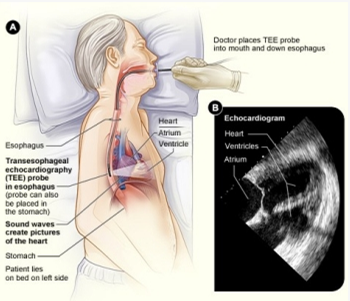Which assessment data would require immediate intervention by the nurse for the client who is six (6) hours post-operative abdominal aortic aneurysm repair?
Absent bilateral pedal pulses.
Complaints of pain at the site of the incision.
Distended, tender abdomen.
An elevated temperature of 100 F
The Correct Answer is A
Absent bilateral pedal pulses indicate a potential vascular complication, such as impaired circulation or blood flow to the lower extremities. It may suggest compromised perfusion and could be a sign of arterial occlusion or thrombosis, which requires immediate intervention. The nurse should notify the healthcare provider promptly to assess the client's condition and initiate appropriate interventions to restore circulation to the lower extremities.
While complaints of pain at the site of the incision are significant, post-operative pain is expected after abdominal surgery. The nurse should assess the pain and provide appropriate pain management interventions, but it may not require immediate intervention unless the pain is severe or accompanied by other concerning symptoms.
A distended, tender abdomen could indicate various post-operative complications, such as bowel obstruction or peritonitis. Although it should be evaluated and reported to the healthcare provider, it may not require immediate intervention unless the client's condition deteriorates or other signs of a surgical emergency are present.
An elevated temperature of 100°F (37.8°C) alone, without other signs of infection or systemic complications, may not necessarily require immediate intervention. It could be a normal response to surgery or a mild post-operative infection. The nurse should monitor the client's temperature and assess for other signs of infection, and if necessary, report it to the healthcare provider for further evaluation.
Nursing Test Bank
Naxlex Comprehensive Predictor Exams
Related Questions
Correct Answer is D
Explanation
Hypertension, or high blood pressure, is often referred to as the "silent killer" because it typically does not cause noticeable symptoms until it has already caused damage to target organs such as the heart, blood vessels, kidneys, or brain. It is crucial for the client to understand that even if they do not experience symptoms, untreated or poorly controlled hypertension can lead to serious complications, including heart disease, stroke, kidney problems, and more.
While dietary changes and increasing physical activity are important lifestyle modifications for managing hypertension, it is not accurate to state that most people can control their blood pressure through these measures alone. Hypertension is a complex condition influenced by multiple factors, and many individuals require additional interventions, such as medication, to effectively manage their blood pressure.
Annual blood pressure checks are indeed important to monitor the effectiveness of treatment and ensure that blood pressure remains within the target range. However, this information is secondary to the understanding that hypertension is typically asymptomatic until target organ damage occurs.
Recognizing the potential risks associated with untreated or uncontrolled hypertension can motivate the client to adhere to their treatment plan and make necessary lifestyle changes.
Correct Answer is D
Explanation
Transesophageal echocardiography is a diagnostic procedure that involves inserting a probe into the esophagus to obtain detailed images of the heart. In some cases, an access line may be initiated in the femoral artery to monitor blood pressure during the procedure and administer medications if needed. Informing the client about this aspect of the procedure helps ensure that they are aware of what to expect and can provide informed consent.

Let's go through the other options and explain why they are not the most appropriate actions:
Instruct the client to drink 1 L of water before the test: This action is not necessary for transesophageal echocardiography. Drinking water before the test is typically done for certain abdominal or pelvic ultrasound examinations to provide better visualization. However, for TEE, the probe is inserted into the esophagus, and drinking water is not required.
Administer intravenous (IV) benzodiazepines and opioids: The administration of intravenous benzodiazepines and opioids is not a routine part of preparing a client for TEE. The need for sedation or analgesia during the procedure would be determined based on the individual client's condition and level of discomfort.
Inform the client that the client will remain on bed rest following the procedure: While some post-procedure instructions may be given to the client, such as avoiding eating or drinking until the effects of sedation wear off, informing the client that they will remain on bed rest following the procedure is not a specific requirement for TEE. Post-procedure instructions can vary depending on the individual client's condition and the healthcare provider's recommendations.
Whether you are a student looking to ace your exams or a practicing nurse seeking to enhance your expertise , our nursing education contents will empower you with the confidence and competence to make a difference in the lives of patients and become a respected leader in the healthcare field.
Visit Naxlex, invest in your future and unlock endless possibilities with our unparalleled nursing education contents today
Report Wrong Answer on the Current Question
Do you disagree with the answer? If yes, what is your expected answer? Explain.
Kindly be descriptive with the issue you are facing.
